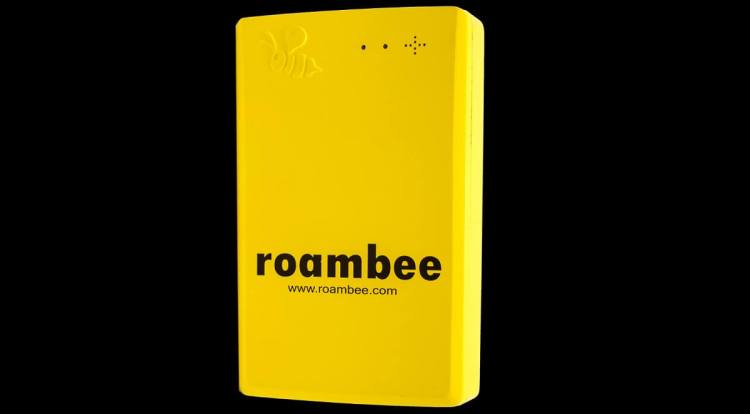Roambee uses the Internet of Things, or making everyday objects smart and connected, to improve the supply chain and track enterprise assets. The Silicon Valley startup has raised $4.1 million for this task from Deutsche Telekom Strategic Investments (DTSI) and other investors.
Santa Clara, Calif.-based Roambee has also created an alliance with T-Systems, the corporate communications arm of Deutsche Telekom, which owns the mobile phone service company T-Mobile.
“DTSI has a strong history of success and high bar for choosing their investments,” said Sanjay Sharma, Roambee CEO and founder, in a statement. “We are delighted to be a part of their portfolio. The DTSI investment will be used to expand in new geographies aggressively. DTSI brings more than just investment, we are working with T-Systems, a Deutsche Telekom subsidiary, and its various local business units to create joint industry solutions that can be offered to their enterprise customers.”

Above: Roambee
Roambee will use the funds to grow global sales, marketing, and IoT technology innovation. DTSI is the strategic investment division of Deutsche Telekom and one of the largest corporate venture funds in the technology, media, and telecom industries. The group has made over 200 investments and manages a current portfolio of around 70 companies.
Roambee makes it possible to track assets using an array of hardware, software, and sensor data. It uses proprietary analytics, predictive reporting, and open application program interfaces (APIs). The idea is to figure out where a company’s assets are in real time, whether the assets are being shipped someplace or are sitting in a warehouse.
“Through our in-depth evaluation process, including market research, customer feedback from global customers, and the successful partnership with T-Systems, it became very clear that Roambee has developed superior technology capable of serving multiple industries,” said Randeep Wilkhu, investment director at DTSI, in a statement. “Roambee has a very seasoned and accomplished team led by an experienced CEO. I am impressed by how much Roambee has achieved with very little capital. Roambee’s addressable market is growing very rapidly; monitoring goods and assets is an enormous opportunity, and Roambee has the potential to become the most valuable company in this space.”
Roambee will use T-Systems’ platform to deploy its smart logistics and asset monitoring services. Together, employing an “on-demand” pay-per-use business model, the two companies are delivering a solution for real-time visibility and tracking.
Roambee will provide prebuilt Software-as-a-Service (SaaS) applications that include wireless portable sensor devices and cloud-based software, robust reporting, and predictive analytics. The solution will be provided on T-Systems’ highly scalable platform and offers access to a global infrastructure of secure data centers and cloud solutions from a wide partner ecosystem.
Roambee currently has 150 customers around the world, including DHL, with 3,000 Bees in use. Each client has four to five shipments per month. Roambee uses cell service for communication for its Bees. What makes T-System a good partner from a service perspective is that the Bees can use one sim card for global tracking and don’t have to move from T-Mobile to a local service provider when tracking globally.
Roambee’s software is also able to detect whether a shipment is coming by land, air, or sea. When a shipment is in transit by air or sea, the device can go to sleep, while still gathering data. This adaptability extends battery life. And the power management module allows Roambee to last 90-100 days on a single charge.
VentureBeat's mission is to be a digital town square for technical decision-makers to gain knowledge about transformative enterprise technology and transact. Learn More

